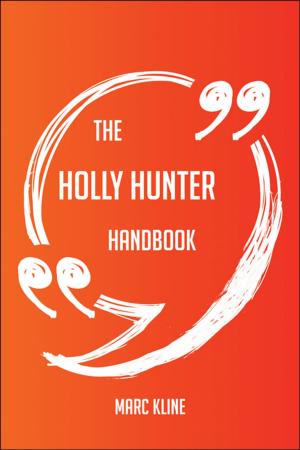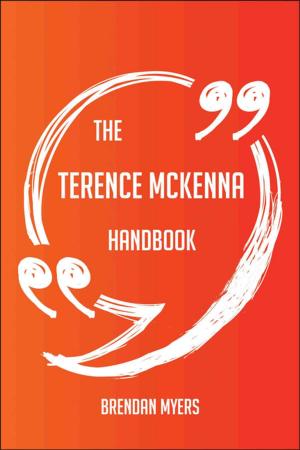| Author: | Catherine Christine | ISBN: | 9781486427864 |
| Publisher: | Emereo Publishing | Publication: | October 24, 2012 |
| Imprint: | Emereo Publishing | Language: | English |
| Author: | Catherine Christine |
| ISBN: | 9781486427864 |
| Publisher: | Emereo Publishing |
| Publication: | October 24, 2012 |
| Imprint: | Emereo Publishing |
| Language: | English |
Here's part of the content - you would like to know it all? Delve into this book today!..... : February 11, 1731][Note 1][Note 2] - December 14, 1799), was one of the Founding Fathers of the United States, serving as the commander-in-chief of the Continental Army during the American Revolutionary War and later as the new republic's first President.
...Chosen by the Second Continental Congress in 1775 to be commander-in-chief of the Continental Army in the American Revolution, Washington managed to force the British out of Boston in 1776, but was defeated and almost captured later that year when he lost New York City.
... Historian Ron Chernow is of the opinion that his frustrations in dealing with government officials during this conflict led him to advocate the advantages of a strong national government and a vigorous executive agency that could get results; other historians tend to ascribe Washington's position on government to his later American Revolutionary War service.
... By 1798, relations with France had deteriorated to the point that war seemed imminent, and on July 4, 1798, President Adams offered Washington a commission as lieutenant general and Commander-in-chief of the armies raised or to be raised for service in a prospective war.
There is absolutely nothing that isn't thoroughly covered in the book. It is straightforward, and does an excellent job of explaining all about George Washington in key topics and material. There is no reason to invest in any other materials to learn about George Washington. You'll understand it all.
Inside the Guide: George Washington, Chestertown, Maryland, Chester A. Arthur, Charles Willson Peale, Charles Washington, Charles Lee (Attorney General), Charles Cotesworth Pinckney, Cedar Lawn, Cambridge, Massachusetts, C.V. Starr Center for the Study of the American Experience, Bushrod Washington, Braddock Expedition, Boston campaign, Bloodletting, Blakeley (West Virginia), Betty Washington Lewis, Benjamin Harrison, Benjamin Franklin Washington, Benjamin Franklin, Beall-Air, Battles of Saratoga, Battles of Lexington and Concord, Battle of the Monongahela, Battle of the Chesapeake, Battle of Trenton, Battle of Princeton, Battle of Monmouth, Battle of Long Island, Battle of Jumonville Glen, Battle of Germantown, Battle of Fort Washington, Battle of Fort Necessity, Battle of Brandywine, Augustine Washington, Jr., Augustine Washington, Associate Justice of the Supreme Court of the United States, Articles of Confederation, Arthur St. Clair, Arlington House, The Robert E. Lee Memorial, Anthony Wayne, Andrew Jackson, Ancestry of George Washington, American Revolutionary War, American Presidents: Life Portraits, Alexandria, Virginia, Alexander Hamilton, Age of Enlightenment, Abraham Lincoln, Abingdon (plantation), 886 Washingtonia, 1st United States Congress, 1932 Washington Bicentennial, 1776 (book)
Here's part of the content - you would like to know it all? Delve into this book today!..... : February 11, 1731][Note 1][Note 2] - December 14, 1799), was one of the Founding Fathers of the United States, serving as the commander-in-chief of the Continental Army during the American Revolutionary War and later as the new republic's first President.
...Chosen by the Second Continental Congress in 1775 to be commander-in-chief of the Continental Army in the American Revolution, Washington managed to force the British out of Boston in 1776, but was defeated and almost captured later that year when he lost New York City.
... Historian Ron Chernow is of the opinion that his frustrations in dealing with government officials during this conflict led him to advocate the advantages of a strong national government and a vigorous executive agency that could get results; other historians tend to ascribe Washington's position on government to his later American Revolutionary War service.
... By 1798, relations with France had deteriorated to the point that war seemed imminent, and on July 4, 1798, President Adams offered Washington a commission as lieutenant general and Commander-in-chief of the armies raised or to be raised for service in a prospective war.
There is absolutely nothing that isn't thoroughly covered in the book. It is straightforward, and does an excellent job of explaining all about George Washington in key topics and material. There is no reason to invest in any other materials to learn about George Washington. You'll understand it all.
Inside the Guide: George Washington, Chestertown, Maryland, Chester A. Arthur, Charles Willson Peale, Charles Washington, Charles Lee (Attorney General), Charles Cotesworth Pinckney, Cedar Lawn, Cambridge, Massachusetts, C.V. Starr Center for the Study of the American Experience, Bushrod Washington, Braddock Expedition, Boston campaign, Bloodletting, Blakeley (West Virginia), Betty Washington Lewis, Benjamin Harrison, Benjamin Franklin Washington, Benjamin Franklin, Beall-Air, Battles of Saratoga, Battles of Lexington and Concord, Battle of the Monongahela, Battle of the Chesapeake, Battle of Trenton, Battle of Princeton, Battle of Monmouth, Battle of Long Island, Battle of Jumonville Glen, Battle of Germantown, Battle of Fort Washington, Battle of Fort Necessity, Battle of Brandywine, Augustine Washington, Jr., Augustine Washington, Associate Justice of the Supreme Court of the United States, Articles of Confederation, Arthur St. Clair, Arlington House, The Robert E. Lee Memorial, Anthony Wayne, Andrew Jackson, Ancestry of George Washington, American Revolutionary War, American Presidents: Life Portraits, Alexandria, Virginia, Alexander Hamilton, Age of Enlightenment, Abraham Lincoln, Abingdon (plantation), 886 Washingtonia, 1st United States Congress, 1932 Washington Bicentennial, 1776 (book)















